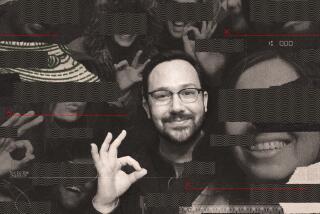Iraq war was ‘right decision,’ says British prime minister
- Share via
Reporting from London — Don’t blame me -- I was just the money- man.
Those weren’t his exact words, but it certainly seemed to be his message, and through hours of grilling Friday on why and how Britain signed up for the U.S.-led invasion of Iraq, Gordon Brown largely stuck to it.
It had a ring of logic. After all, Brown wasn’t Britain’s prime minister when the nation went to war in 2003; then, the distinction belonged to Tony Blair. Brown was chancellor of the exchequer, the fancy British title for head of the treasury. It was his job to make sure that the country’s pockets were deep enough to finance a military operation if it came to pass, not to engage in the fine arts of diplomacy.
But Brown is prime minister now, and all eyes were on him as he gave evidence before an independent panel investigating the Iraq war.
Having spent much of the last few years avoiding the subject, a no-win topic in British politics, he had to talk about nothing else for four long hours.
He cleared his throat. He shuffled his notes. He managed to look both dour and nervous at the start, never a good combination.
Then he bowed to the inevitable.
“It was the right decision, and it was for the right reasons,” Brown said of a war that was highly unpopular here, at last shouldering some of the collective responsibility that, as a longtime senior member of the British Cabinet, he couldn’t duck completely.
Blair, Brown’s charismatic predecessor and sometime rival, had said much the same thing before the panel in January, but with greater conviction, and some say arrogance. From Brown, the words sounded passionless and, when he repeated them a few minutes later, a bit robotic.
But he quickly launched into an explanation of the “right reasons,” which turned out to be different from Blair’s. Where Blair had insisted that Saddam Hussein’s alleged possession of weapons of mass destruction was seen as a grave threat, Brown said it was right to go after the Iraqi leader to show that you couldn’t get away forever with flouting the rules laid down by the international community.
The departure underlined a subtler, but no less unmistakable, message of Brown’s appearance: I’m not Blair.
Three years after he moved out of 10 Downing St., Blair continues to haunt his successor, like Hamlet’s ghost. The former prime minister is reviled by many Britons because of the decision to invade Iraq. So Brown sought to distance himself from Blair in almost every way possible Friday, from start to finish.
Brown strode confidently through the front door of the building where the hearings are being held, before a thicket of flashing cameras. Blair, before his testimony, was whisked in early through the back door to avoid the scores of angry protesters baying for his head.
Brown’s first comments were to pay homage to British troops. Blair was roundly criticized by soldiers’ families for not doing so.
Brown acknowledged that there were some hard lessons to be learned from the war, particularly the need to have a plan to win the peace. (He blamed the U.S. for falling down badly on that job.) Blair expressed virtually no regret for how the war unfolded.
And, less flatteringly, Brown’s bass drone induced a yawn or two from his listeners. When Blair spoke before the panel, the audience was never less than rapt.
It was only when the talk turned from human beings to budgets and numbers that Brown, Britain’s No. 1 official number-cruncher for 10 years, relaxed and grew more animated, perhaps not the best omen for a leader who will soon face voters in a general election.
Yes, he was in the loop when it came to discussions of whether to invade Iraq, Brown said. Yes, he “talked to Mr. Blair regularly,” despite well-known episodes of antagonism between them.
But no, he didn’t attend all the meetings called by his predecessor. Nor did he know the contents of letters Blair was sending to President Bush, apparently containing assurances of Britain’s support if the U.S. chose to pursue military action against Hussein.
As chancellor of the exchequer, Brown said, he wasn’t responsible for foreign policy. He simply assured his colleagues and military officials that the money would be available in the event of war.
Families of service members have since accused Brown of stinting on defense funding, depriving troops of equipment that could have saved the lives of some soldiers. Brown insisted he had not.
“Every request that the military commanders made to us for equipment was answered,” he said, in one of his more emphatic moments Friday. “No request was ever turned down.”
There was more talk of defense procurement, more talk filled with numbers.
“Brown’s in his element now. It’s all ‘billions this’ and ‘expenditure that,’ ” wrote a blogger for the Daily Telegraph newspaper. “It really is like listening to someone reading their tax return.”
By midafternoon, Brown was done. He exited the way he came in, through the front door, out beneath a blue sky where, he no doubt hoped, Blair’s specter was no longer hovering.
More to Read
Sign up for Essential California
The most important California stories and recommendations in your inbox every morning.
You may occasionally receive promotional content from the Los Angeles Times.














